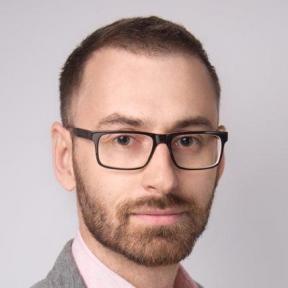“Moscow University in the era of reforms and revolutions: 1848-1921” - course 2800 rubles. from MSU, training 15 weeks. (4 months), Date: December 5, 2023.
Miscellaneous / / December 09, 2023
1. Introduction. On the way to a classical university in Russia
What is a “university”, what are its characteristic features in Europe of the Middle Ages and Modern times? Periodization of the history of universities in Europe. The largest university centers that influenced the development of university education in Russia. “Universities” in Russia before the emergence of Moscow University. Foundation of the University of Berlin: the idea of a university in Prussia during the Napoleonic Wars. S.S. Uvarov and his connections with the world of German scientists. “To be Russian in spirit and European in education”: educational reforms by S.S. Uvarov and Moscow University of the era of S.G. Stroganov (1835–1848). Synchronicity in the development of research universities in Europe and Russia. Where there is a university, there is Europe. The influence of the European revolutions of 1848 on Moscow University and the education system in Russia.
2. “To serve and to renounce for the sake of science.” Scientific imperative T.N. Granovsky and the formation of values of a classical university in Russia.
T.N. Granovsky as a personality: the main stages in the formation of a scientist’s worldview. St. Petersburg University during the student years of T.N. Granovsky. Granovsky and N.V. circle Stankevich. German classical philosophy as a subject of study for Russian intellectuals. Berlin as the center of the scientific world: space and infrastructure of science. Berlin salon E.P. Frolova: the formation of ideas about professorial service in Granovsky. “Old” and “young” professors at Moscow University in the 1840s: similarities and differences. “A German student who has read a lot of French newspapers”: Granovsky in the perception of the “old professors.” Our everything: Granovsky in the perception of students and the “young professors”. Granovsky's university lectures as a cultural phenomenon. Public lectures by Granovsky at Moscow University. “Four characteristics”: Granovsky’s public course in 1851.
3.Traditions of T.N. Granovsky and the era of Great Reforms.
Science as a transformative force in Granovsky’s lecture courses. Granovsky's public optimism and faith in progress. Figures of the Great Reforms (“people of the 1840s”) as students of Granovsky. Krylov's story: the formation of the ethical code of a professor at Moscow University. The era of the “dark seven years” (1848–1855) at Moscow University: Granovsky’s spiritual crisis. Granovsky and the celebration of the 100th anniversary of Moscow University. Granovsky's funeral and traditions of commemoration at Moscow University. Granovsky and the student movement of the era of the Great Reforms. “Science Everywhere”: Students as Teachers. “Historical note” of professors of Moscow University in 1861: B.N. Chicherin about the role of Granovsky in the formation of traditions of relationships between professors and students of Moscow University. Granovsky as a professor and scientist in discussions about his legacy. The image of Granovsky by F.M. Dostoevsky: the question of the responsibility of the idealists of the 1840s. for the formation of the spirit of nihilism. Traditions of Granovsky and the Department of General History of Moscow University.
4. University Charter of 1863: the mission of the university as perceived by the professors of Moscow University
The main stages of preparing the university charter of 1863. The student movement and the university question in Russia at the turn of the 1850s–1860s. M.A. Korf and N.I. Kostomarov: the idea of an open university in Russia. B.N. Chicherin as an ideologist of the classical university in the early 1860s. The University Charter of 1863 in the context of the educational policy of Minister A.V. Golovnina. “The Chicherin History” (1866–1868): a new balance of power within the professorial corporation of Moscow University. The university newspaper “Moskovskie Vedomosti” and the magazine “Russian Bulletin” as centers of conservative thought in post-reform Russia. The image of a professor and a student in conservative journalism. “Against the Current”: M.N. Katkov, P.M. Leontyev, N.A. Lyubimov as critics of the 1863 statute. CM. Solovyov as the leader of the liberal professors at Moscow University. Discussion in the press about the role of the German university model for the development of Russian universities: N.A. Lyubimov vs. V.I. Guerrier.
5. Scientific schools at Moscow University in the second half of the 19th – early 20th centuries: community of Moscow historians.
Professional historians in Russia before the emergence of universities. The role of university statutes and legislation on academic degrees in the institutionalization of the profession of historian in Russia. The curriculum of the Faculty of History and Philology of Moscow University as the basis for historical specialization. Creation of infrastructure for history classes at Moscow University. Traditions of lecture courses by Moscow historians: T.N. Granovsky, S.M. Soloviev, V.O. Klyuchevsky. Seminars V.I. Guerrier, S.M. Solovyova, V.O. Klyuchevsky and P.G. Vinogradova. Traditions of relationships with students and pedagogical doctrines of professors-historians of Moscow University. IN AND. Guerrier as a teacher. IN. Klyuchevsky as a teacher. P.G. Vinogradov as a teacher. Moscow and St. Petersburg school of historians: general and special.
6-7. "The Divided University": 1884–1911.
Entry into force of the 1884 charter in Moscow. Bureaucratization of university life. The role of the inspector of Moscow University in the formation of new practices of university everyday life. Inspector Bryzgalov and the Bryzgalov story of 1887. The position of a professor according to the charter of 1884. Appointment of professors at Moscow University by the Minister of Public Education: pros and cons of the system. The decline of the professor's authority in university life.
"Individual visitors": the position of students under the 1884 charter. The boundaries of legality and the student underground: the development of compatriot organizations.
History of V.O. Klyuchevsky 1894: Union Council of Compatriot Organizations and its role in university life at the turn of the century. Political underground and students of Moscow University. Student unrest and strikes in 1899–1907. Closing of Moscow University in 1905–1907 and 1911 Students and political parties in Russia at the beginning of the 20th century. Students and revolution. “Student suppressor”: rector S.N. Bulgakov and academic professors at the beginning of the twentieth century. The authority of the professor: cases of P.G. Vinogradov and V.I. Guerrier.
8. Moscow University in urban space.
University quarter on Mokhovaya: history of creation.
Clinical town on Devichye Pole: history of creation
Moscow University and city public administration. Moscow “intelligent” vowels. Types of intelligent vowels: V. AND. Guerrier, S. A. Muromtsev, N. AND. Astrov, S. IN. Bakhrushin, M. M. Novikov. School commission of the Moscow City Duma (MGD), the role of “intelligent” vowels in it. MHD and the formation of a system of primary, secondary specialized and higher education in Moscow. The idea of free universal primary education and its development in the Moscow State Duma. P. G. Vinogradov and a plan to improve the material support of school teachers. M. M. Novikov and an extracurricular activity project in a Moscow elementary school. MHD and development of standard gymnasium buildings. MHD and the formation of Moscow People's University. A. L. Shanyavsky. IN AND. Guerrier as an ideologist of social projects in the Moscow State Duma. Medical professors of Moscow University and their role in the formation of the hospital network in Moscow.
9. From imperial to proletarian: Moscow University in 1911–1921.
M.K. Lyubavsky as rector of Moscow University. Lyubavsky's anti-crisis program: the role of anniversaries in the formation of the unity of the professorial corporation of Moscow University (anniversaries of M.V. Lomonosov and T.N. Granovsky; Tatyana's Day as a university-wide holiday). The development of exact and natural sciences at Moscow University by the beginning of the First World War and the implementation of the “defense order”. Restructuring the work of the university to meet the needs of the front. Strengthening the influence of the state on university management. Project of higher education reforms in the Provisional Government and cadet professors of Moscow University. University under the Provisional Government. Bolsheviks and the course towards democratization of the university. Legislative acts of the Soviet government on higher education in 1918–1921. years and the position of the old professors at the university. Confrontation between the Professorial Council and public organizations of the university in 1918–1921. The last rector of the “old university”: M.M. Novikov. Regulations of 1921: new principles of university management.



